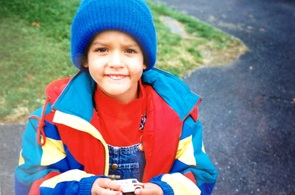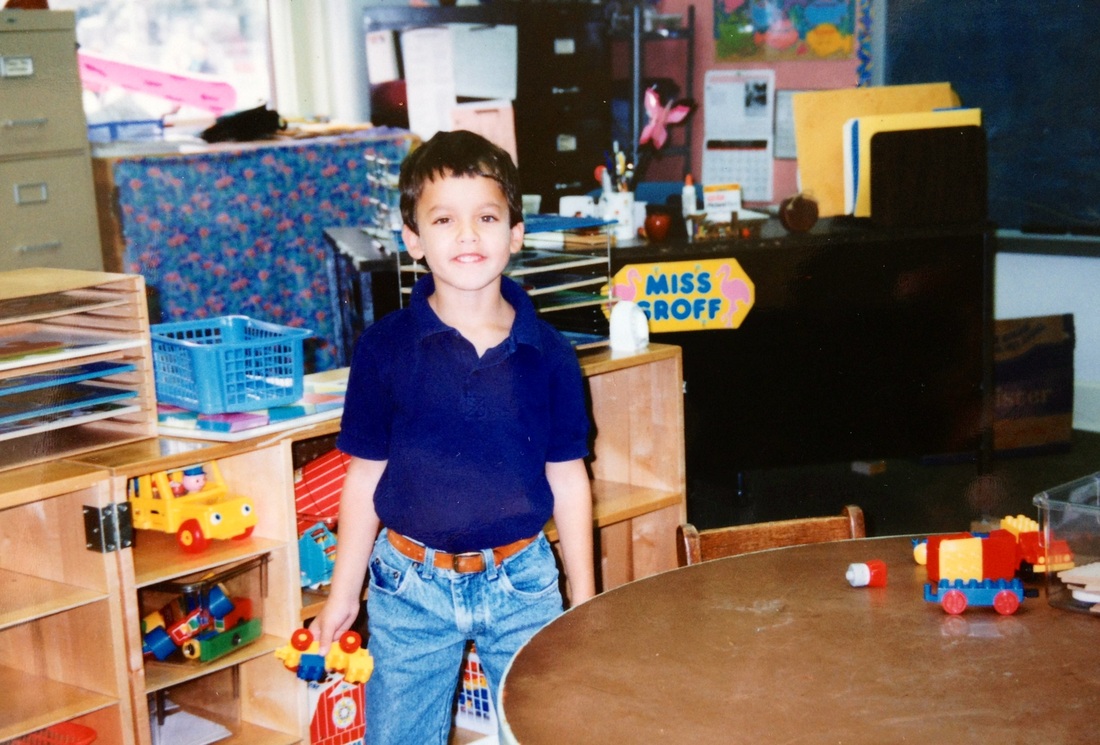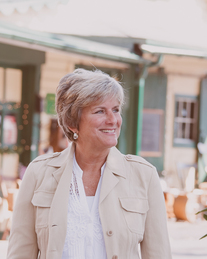
therapist who could address his mounting behavioral issues. School could help teach him practical life skills, but we needed professional support to manage his anger.
Resources for adoptive parents of post-institutional children were not readily available at the time, so I scoured through adoption publications until I found some useful information in the newsletter, The Post. Tears flowed spontaneously as I read for the first time an overview that described our David so thoroughly, I could have written it myself. Apparently we weren’t the only parents of a child struggling with attachment disorder, developmental delays and social impairment. Until then, we’d just assumed that David was unique in his needs, but now I knew we weren’t alone, even if it felt that way. Armed with this information, we pressed on to find the right kind of help for him.
It was a very lonely time for us, particularly in the beginning. Even though we had unwavering support from family and friends, at the end of the day he was our son and the weight of getting this right rested on our shoulders. We simply couldn’t fail him after everything he’d already been through.
We joined an international adoption support group with the hope of finding some encouragement and common sense advice from others who were also traveling the same road. But as wonderful as those folks were, it had an adverse effect on us. Their stories looked nothing like ours. While they had challenges that any adoptive family might have, they appeared to be gaining ground while we just felt like we were sinking deeper into a dark pit. Their children seemed happy and generally well-adjusted.
None of them had a child like David, at least from our vantage point. While I was genuinely happy for them, I’d come away feeling discouraged that our adoption scenario wasn’t equally as optimistic.
We were encouraged, however, to have key people around us who invested deeply into David’s life. Aside from family and among the most faithful was Henrietta, who always made time for David (even when she didn’t have it), marking every birthday and achievement with a handmade card or encouraging word. And there was Janie, a woman with a servant’s heart who would take David to her home every Wednesday after school just to give me a break; and of course Miss Julie, his patient and gifted speech therapist, as well as his many dedicated teachers. There were others too, freely extending grace to him without much in return. I had faithful friends who granted me the priceless gift of a shoulder to cry on, not to mention their countless prayers on our behalf. They never tired of hearing my broken record of a report on David’s progress, or seeming lack thereof.
Folks were always well-meaning to ask how it was going, but I came to dread the questions
because I couldn’t give a glowing report on his development. I am sure some may have doubted my account because David could hold it together for short periods of time. He didn’t often present himself publicly as he was at home. Unless one was to spend more than an hour with him, you just didn’t get a complete picture.
David had very little impulse control or problem solving skills. He had difficulty receiving love, yet he could also display indiscriminate affection. He was often demanding, constantly seeking attention, and could become very hostile and openly aggressive at the drop of a pin. It was often overwhelming, trying to demonstrate love when you’re being patently rejected. David just didn’t seem to like me much (and if I am being brutally honest, at times the feeling was mutual). As long as his immediate wishes were being met, he was a happy camper. If he was denied a particular object of desire or he was required to transition to something else before he was ready, it got pretty ugly. There was a lot of verbal abuse, as he recognized words were an effective weapon against his perceived opposition. It didn’t matter that there would be consequences; negative attention was equally satisfying to him as positive interaction.
Either way, he had you engaged.
there weren’t any manuals to navigate the unique and unexpected scenarios that played out in front of me. I’d pray over him as he slept, pleading with God to heal his wounded heart and mind from the torture he seemed to carry inside. I asked for wisdom to do what I didn’t know how to do as his mother.
I cried out for a miracle, and God answered.
It wasn’t an instantaneous change, in fact it was years before I could see the light at the end of the tunnel. But God gave us glimpses of what could be, and He continually reminded us of His love and faithfulness to our family. David began meeting with a Christian therapist who’d also adopted children from Romania, and it was during these therapy sessions that we first gleaned some information about his early years and the conditions in which he lived. It didn’t remove the struggles, but it gave us better understanding about why he behaved the way he did.
David’s erratic behaviors changed the way we operated as a family. We’d often take two vehicles to an event in case one of us needed to leave early with him. Large crowds and noise were stimulants for him, so we learned to adapt by evaluating if it was an event he could handle. If it was, we’d go. If it wasn’t, we didn’t. Eventually we realized it wasn’t fair to deny our other kids vacations and fun activities simply because David couldn’t manage them, so we enlisted the help of some willing babysitters. I struggled with guilt for excluding David at times, but in the end, he was just as happy not to go and we were grateful for the respite.
It wasn’t until years later that we fully realized how conditioned we’d all become to David’s short fuse. Our lives evolved around his ability to cope, and we’d become jaded to his fits of rage. It was just part of our new normal. We’d tried every form of behavior modification in the book, but nothing seemed to work for a child who just ‘didn’t get it’. David wasn’t being willfully oppositional, he just didn’t have the built-in coping mechanisms that come with normal brain function. We could discipline him (and we did, regularly) but it didn’t change behavior. We reinforced positive behavior as frequently as we could, but it often wasn’t enough to override his demand for immediate gratification.
As David grew older, his anger escalated. He’d been through several different child psychologists by the time he was 10, and some were helpful, others not so much. His diagnoses changed throughout the years, and often it was hard to tell where one ended and the next one started. When the dust
settled we were looking at one emotionally unhealthy boy. He was dually diagnosed, which means he carries both mental health and mental retardation diagnoses. With David’s permission, I can share that he’s been diagnosed with Mild Mental Retardation, Oppositional Defiant Disorder, Pervasive Development Disorder, Reactive Attachment Disorder, and Depression.
Emotional outbursts and full blown temper tantrums were everyday occurrences in our home, and often unpredictable in nature. We were able to observe certain triggers for his rages, and try to redirect him, but there was no set pattern for why he had them. It was most often because his immediate
needs simply were not being met. Once his anger accelerated beyond a certain point, there was nothing we could do but restrain him. For as small as he was, it took all of my strength to keep him from hurting himself or the unfortunate soul who just happened to be in his path at the time. It wasn’t unusual for him
to kick a hole in the wall or throw furniture, and use whatever was within grasp as a flying object.
His anger was consistently directed toward me. The professionals explained that it’s often the one they love the most who takes the most abuse. It was a compliment that stung, but it taught me much about unconditional love.
In fact, God used David to teach me a lot about myself. I’ve often said that he brought out the best in me, but he also exposed the worst. I am not by nature a patient person, but God gave me the gift of years in the waiting room. Once during a particularly desperate plea for David’s healing, God whispered in that still small voice, “you know Carla, I could heal David right now. I am able to remove this difficulty from your life. But if I do, then I remove your opportunity to grow as well. Do you love your comfort more than your desire to know me?” Ouch. If only there was a way to grow without all the pain.
I stopped asking God to heal David the way I wanted after that, and started laying down the dream we’d laid out for our family years earlier. Unless God performed a miracle, David was going to continue to face a lifelong struggle, and we were going to travel that road with him. Without fully realizing it, I started grieving the loss of the relationship that I thought I’d have and started to embrace the one in front of me.
God was changing me, not David. Miracle # 1.
Slowly, God filled my heart with peace, that even though it had not been going according to our plans, it was just as God had ordained it to be. It was very hard, to be sure. There were days I was prostrate before the Lord, crying out for it to end, but there were also days where I rejoiced in God’s faithfulness and provision for our family. God protected us, provided the wisdom we asked for, and gave us angels on earth to walk with us, in friends who prayed regularly and corporately for us, and when the time came to make a gut-wrenching decision, they became our greatest advocates.
David was only 10 years old when we first placed him in the care of others. It was probably the hardest decision I’ve ever made as a mother. After months of seeking counsel and prayer, we agreed to admit David into a residential
therapeutic facility. His anger had become so out of control that he’d threatened to kill each member of our family, with the exception of his dad. While I wasn’t completely convinced he would follow through with his threats, I knew he required more intensive help than we could give him at home. To not get him that help would’ve been selfish. I felt so conflicted, understanding this decision was necessary, but struggling with the irony that we didn’t rescue him from one institution to place him in another.
On our drive home after admitting him, Bruce asked me how I was feeling.
Guilty.
Guilty for leaving David there, and guilty for feeling relief.
That placement was the first in a series of institutional treatments with various providers for the next 9 years. Except for one summer stay, David would not permanently live at home with us again.
To be continued….one more time.


